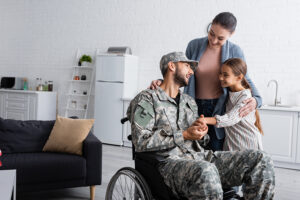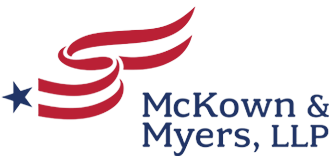 The Department of Veterans Affairs (VA) offers various forms of support for veterans, including the Housebound Allowance benefit. This benefit aims to compensate veterans that are primarily confined in their homes by providing a special monthly pension in addition to the basic pension that they collect.
The Department of Veterans Affairs (VA) offers various forms of support for veterans, including the Housebound Allowance benefit. This benefit aims to compensate veterans that are primarily confined in their homes by providing a special monthly pension in addition to the basic pension that they collect.
What is the VA Housebound Allowance?
The VA defines “housebound” as a veteran who has a permanent disability that keeps them confined to their dwelling and the immediate premises and that it is reasonably certain that they will continue to be so confined throughout their lifetime. As mentioned above, this is an additional benefit to a veteran’s existing pension and serves to acknowledge that veterans who are substantially confined to their immediate premises due to a permanent disability require additional financial support to manage their daily needs and potential in-home care.
To be eligible for these criteria, a veteran must be substantially restricted in their physical ability to leave their dwelling. This isn’t simply about preferring to stay home; it signifies a significant and lasting impairment that severely limits independent mobility outside the immediate living space.
Specifically, the VA defines such confinement under several key tiers:
- Permanent Disability: The disability causing the confinement must be considered permanent. This implies a condition that is unlikely to improve significantly over time. Temporary limitations, even if severe, generally do not meet this criterion.
- Confinement to Dwelling and Immediate Premises: This is the crux of the Housebound criteria. It means the veteran’s ability to leave their home environment is severely restricted. “Immediate premises” refers to the yard or area directly surrounding the dwelling. Brief and infrequent outings, such as for essential medical appointments, might not necessarily disqualify a veteran. Still, regular or extended absences likely indicate they do not meet the criteria.
- Reasonably Certain Lifetime Confinement: The VA needs to be reasonably sure that the veteran’s condition will continue to confine them to their home for the rest of their life. This requires strong medical evidence and a clear prognosis indicating the permanence of the mobility limitations.
It’s important to note that being homebound is not solely determined by the veteran’s physical ability to move. Factors such as the need for constant supervision, significant pain upon movement, or a debilitating fear of leaving the home due to their disability can also contribute to meeting the Housebound criteria.
Who is Eligible for the Housebound Allowance?
Eligibility for the Housebound allowance is tied to the veteran’s existing VA pension benefits. To be considered for the increased pension rate due to being housebound, a veteran must already receive or be eligible for a VA needs-based pension. This means they must meet the following general pension requirements:
- Service Requirements: The veteran must have served at least 90 days of active duty, with at least one day during the war period, or have a service-connected disability.
- Income Limitations: The veteran’s countable income must be below a specific annual limit set by Congress, which changes annually.
- Net Worth Limitations: The veteran’s net worth, which is calculated by subtracting specific exclusions from the veterans’ assets, must also be below a specified limit.
A veteran must also meet one of the criteria in the specific disability requirement in addition to the general pension requirements listed above:
- A single permanent disability rated 100% disabling and, due to this disability, the veteran is permanently and substantially confined to their dwelling and immediate premises. This is the most common pathway to meeting the Housebound criteria. The 100% disability rating signifies a severe service-connected impairment.
- More than one permanent disability, with at least one disability, rated 100% disabling, and due to these disabilities, the veteran is permanently and substantially confined to their dwelling and immediate premises. This acknowledges that multiple severe disabilities can collectively lead to home confinement.
It is crucial to understand that a 100% disability rating alone does not automatically qualify a veteran as housebound. The VA must also determine that the 100% disabling condition is the direct cause of the veteran’s permanent and substantial confinement to their home.
What Materials and Documents are Needed To File for Housebound Allowance?
To successfully apply for Housebound Allowance, a veteran applicant must present the following documentation and forms:
- VA Pension Form: VA Form 21P-527EZ, Application for Pension.
- Demonstrating Housebound Status: A veteran must provide compelling evidence to support their claim to the VA. This typically includes:
- Detailed Medical Records
- Physician’s Statement
- Personal Statement either from the Veteran or Caregiver
- Supporting Documentation: Other relevant documentation, such as reports from physical therapists, occupational therapists, or home health aides, can further support the claim.
The VA Housebound allowance provides crucial financial support for veterans whose service-connected disabilities have severely limited their ability to leave their homes. Understanding the specific criteria, including the requirement for a permanent disability causing substantial home confinement and the need to be eligible for a VA pension, is essential for veterans and their families seeking this benefit. By gathering comprehensive medical evidence and demonstrating how the veteran meets the stringent requirements, eligible individuals can access this valuable form of assistance and improve their quality of life. Navigating the VA system can be complex, and seeking help from a reputable lawyer specializing in VA benefits can be beneficial throughout the application process.
At McKown and Myers, we’re here to answer your questions – call 765-668-7531 or complete our contact form here. There’s no obligation – we’re here to help.
